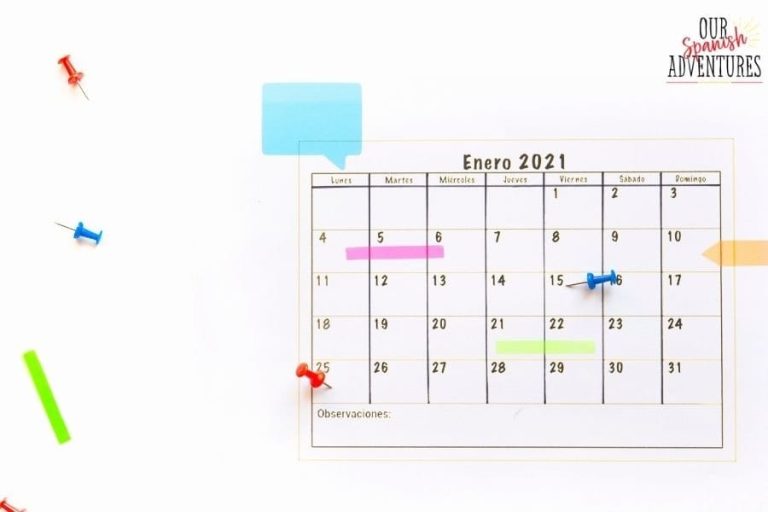Everything you need to know about becoming self-employed (autónomo) in Spain
One of your main concerns when planning a move to Spain, is probably around what you’ll do for work. Finding a job in Spain can be very difficult, what with the language barrier and high unemployment rates. If you already run a business in the UK, or do freelance work, then it’s a good idea to set yourself up as self-employed in Spain – this is known as Autónomo.
Like most things in Spain that involve paperwork, setting yourself up as autónomo is incredibly confusing, especially if you don’t speak Spanish. Having been through the process we’d highly recommend hiring someone to do it all for you, as if you get anything wrong you could find yourself with large fines later on.
Whether you do it all yourself, or get help, there are lots of things you should know first about becoming self-employed in Spain…
What is ‘autónomo’?
Autónomo is simply the Spanish word for self-employed or freelance individuals, as well as those running a small business.
Much like in other countries, you will invoice your clients and pay your taxes to the government through regular tax returns.
Who needs to register as autónomo in Spain?
If you are a resident in Spain and earn any money that is not through an employer, then you will need to register as autónomo.
It doesn’t matter how small your earnings are, even if you are selling on Etsy or selling beauty products locally, you are required to declare yourself as autónomo in Spain and pay taxes. It doesn’t matter how high or low your income is.
Can anyone become autónomo?
If you are from an EU country it’s very easy to set yourself up as autónomo as soon as you move to Spain. This is more difficult for those from non-EU countries (which the UK will be in 2021) as you need residency and a work permit. More on that in a bit…
What liabilities are there for autónomo in Spain?
Working as a freelancer or being self-employed in Spain comes with some obligations, and we will warn you now that it can be quite costly to be autónomo.
Social security
First of all you will need to pay Social Security contributions every month. Doing this will entitle you (and your dependents) to healthcare, as well as a Spanish pension.
This comes out of your Spanish bank account automatically and starts at €60 per month for your first year, rising in increments until you are paying €280 per month from your second year.
There are extra allowances for certain circumstances where you can pay the lower amount for longer, such as woman younger than 35, men under 30, individuals over 65, and those living in towns with less than 5,000 inhabitants.
Tax
The Spanish tax year runs from January – December and as autónomo you will have to file quarterly tax returns and pay income tax in January, April, July and October. We recommend getting an accountant to do this for you as the forms are obviously all in Spanish and can be quite confusing. As a guide we pay our accountant €50 per month for everything associated with being self-employed in Spain.
After calculating your profit (income minus expenses) you will pay 20% in income tax. At the end of the year you will do a yearly tax return and if there are any discrepancies you will either pay the extra or receive a tax rebate.
VAT (IVA)
All self-employed in Spain have to charge 21% VAT (known as IVA in Spain) on all invoices. There is no minimum threshold as there is in the UK. Again this is paid quarterly, and calculated by deducting the IVA paid on any expenses from the IVA charged to clients and paying the difference.
Some products and services are exempt from IVA, as are some invoices to overseas businesses, but this is one to discuss with an accountant or tax advisor.
How do you become autónomo?
Becoming autónomo in Spain is quite a complicated process to do yourself but briefly involves the following steps:
Get a work permit
If you are not from an EU country, you will need a work permit to register as autónomo in Spain. You must apply for this from your country of origin, and once received you will get your residence permit and can continue with the rest of the process.
Get an NIE number
An NIE is an identification number for foreigners and is needed by everyone, not just those setting up as autónomo. You can find more information on applying for your NIE here and it should definitely be one of the first things on your list when moving to Spain.
Register with the tax authorities
You will need to register at your local Tax Office, in Spain this is called the Hacienda. This process basically tells them that you are going to be setting up as autónomo and sending invoices, and will therefore need to pay income tax.
You will need to book an appointment through the Agenica Tributaria, and will be given the relevant forms to fill out (Modelo 036 or Modelo 037) which you’ll need to take along to your appointment. You will also need to take the following documents:
- NIE number
- Valid passport and photocopy
- Bank account number
Once you have registered with the tax authorities, you can legally start working in Spain.
Register for social security
Don’t forget to register for social security so that you can access the Spanish healthcare system. This needs to be done within 30 days of registering with the tax office.
You need to make an appointment at your nearest Social Security office to register for the régimen especial para trabajadores autónomos (RETA). Documentation you’ll need to take is as follows:
- NIE number
- Valid passport and a photocopy
- Model 036 or 037
- IRPF form you got from the tax office
- Padrón
Once set up, you will pay your contributions on the last day of each month.
You can now start working as a freelancer/self-employed in Spain – Good luck!







